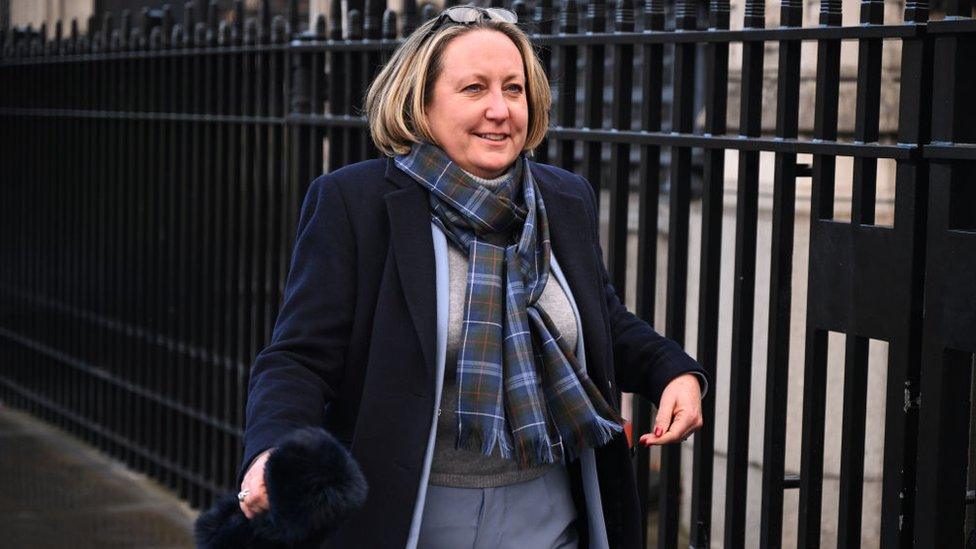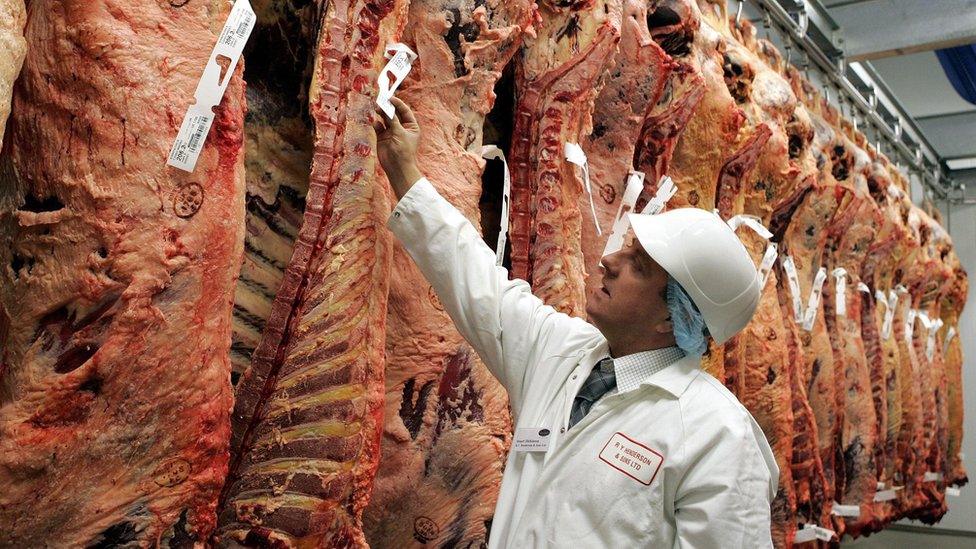Brexit: New Zealand deal 'to boost NI economy by 0.01%'
- Published

Imports of New Zealand food products, such as lamb and beef, will be covered by quotas
Official government estimates suggest that a United Kingdom trade deal with New Zealand will boost Northern Ireland's economy by just 0.01%.
The deal was formally signed on Monday and means tariffs will be eliminated on all UK exports to New Zealand.
Imports of some of the country's food products, mostly lamb and beef, will be covered by quotas for up to 15 years.
That means if imports rise above a certain level tariffs can still be imposed.
International Trade Secretary Anne-Marie Trevelyan said that among the tariffs being eliminated on UK exports are those of up to 10% on clothing and footwear, 5% on buses and up to 5% on ships, bulldozers and excavators.
She added that smaller businesses should also find it easier to break into the New Zealand market as a result of modernised customs procedures.
The economic analysis also contains a downside scenario in which the deal could mean the Northern Ireland economy takes a hit.
In that scenario, the deal would reduce Northern Ireland's economic output by 0.06% or £26m over 15 years compared to a scenario where there was no trade deal.
Protocol impact
None of this economic modelling explicitly takes account of any impacts arising from the Northern Ireland Protocol.
The protocol is a part of the UK government's Brexit deal which has kept Northern Ireland aligned with the European Union's (EU) single market for goods, but has led to restrictions on some goods travelling between Great Britain and Northern Ireland.

Anne-Marie Trevelyan said smaller businesses would find it easier to break into the New Zealand market
Imports into Northern Ireland can only make use of the UK's trade deals if the difference between the applied UK tariff and the applied EU tariff is less than 3% of the value of the good.
Because the EU tariff for imports of lots of food products is so high, the difference between the EU tariff and the UK's trade deal tariff with New Zealand will be over 3%.
This means New Zealand food exports to Northern Ireland are unlikely to be able to make use of the trade deal.
The UK can still choose to refund or waive the EU tariff for Northern Ireland importers, but this ability is constrained by state aid rules.
The EU and New Zealand are currently negotiating a trade deal which if agreed would likely remove those protocol issues.

Analysis
At the level of the whole economy the affects of this deal are trivial. That is not surprising.
New Zealand is a small economy, it is a long way away and already has low barriers to trade so the deal was never going to make a big difference.
However, it forms part of a wider strategy for the UK to accede to the Comprehensive and Progressive Agreement for Trans-Pacific Partnership (CPTPP).
That is a vast free trade area populated by half a billion people and with a joint gross domestic product (GDP) of £8.4tn in 2020.

Related topics
- Published2 November 2021

- Published20 October 2021
